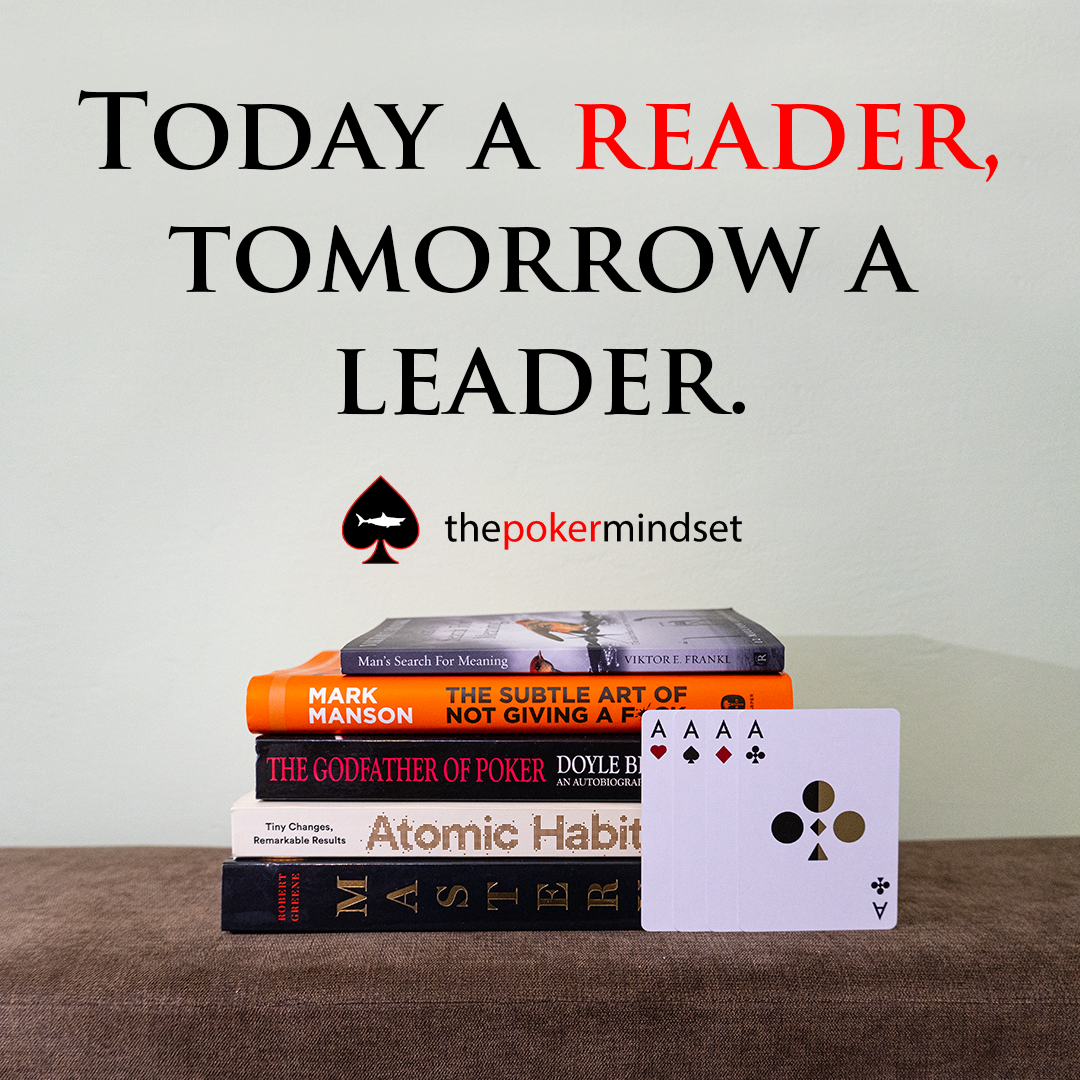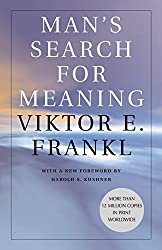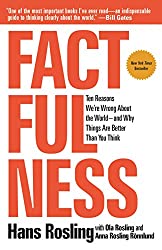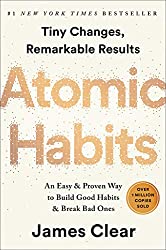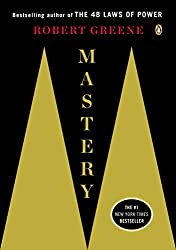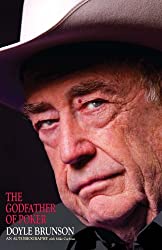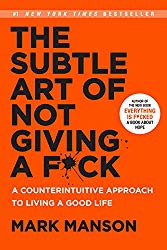Reading is one of my favorite habits and it’s the one habit that all high-performers share. The benefits are amazing: if you read in the morning you will start your day inspired and motivated, ready to crush your day and to perform at a high level during your poker sessions.
Therefore, I recommend reading for 15-30 minutes every single morning. I guarantee that it will improve your poker mindset and your life as well.
“The time and energy you invest in reading can pay you back a hundred or a thousand times.” – Steve Burns
Here are the top 6 books I’ve read in 2020 and what I’ve learned from them. I hope you will enjoy them as much as I did!
Note: This post contains affiliate links, which means that I make a small commission if you make a purchase, at no extra cost to you. I take care to only recommend books that I think are useful for my audience.

1. Man’s Search for Meaning by Viktor Frankl
Psychiatrist Viktor Frankl’s memoir has riveted generations of readers with its descriptions of life in Nazi death camps and its lessons for spiritual survival. Based on his own experience and the stories of his patients, Frankl argues that we cannot avoid suffering but we can choose how to cope with it, find meaning in it, and move forward with renewed purpose.
I visited the Auschwitz-Birkenau and Struthof concentration camps and I guess this is the reason why Victor Frankl’s book affected me deeply. If you are going through a tough period of your life then this is a must read book. Here are some of my favorite quotes:
“When we are no longer able to change a situation, we are challenged to change ourselves.”
“Everything can be taken from a man but one thing: the last of the human freedoms—to choose one’s attitude in any given set of circumstances, to choose one’s own way.”
“Those who have a ‘why’ to live, can bear with almost any ‘how’.”
“For the first time in my life I saw the truth as it is set into song by so many poets, proclaimed as the final wisdom by so many thinkers. The truth – that Love is the ultimate and highest goal to which man can aspire. Then I grasped the meaning of the greatest secret that human poetry and human thought and belief have to impart: The salvation of man is through love and in love.”
“Ultimately, man should not ask what the meaning of his life is, but rather he must recognize that it is he who is asked. In a word, each man is questioned by life; and he can only answer to life by answering for his own life; to life he can only respond by being responsible.”
“One should not search for an abstract meaning of life. Everyone has his own specific vocation or mission in life to carry out a concrete assignment which demands fulfillment. Therein he cannot be replaced, nor can his life be repeated. Thus, everyone’s task is as unique as is his specific opportunity to implement it.”
“When a man finds that it is his destiny to suffer, he will have to accept his suffering as his task; his single and unique task. He will have to acknowledge the fact that even in suffering he is unique and alone in the universe. No one can relieve him of his suffering or suffer in his place. His unique opportunity lies in the way in which he bears his burden.”
Click here to buy the book from Amazon!
2. Factfulness by Hans Rosling
If you are a poker player and you like numbers and facts then you will probably enjoy Factfulness and it will change the way you see the world.
It turns out that the world is in a much better state than we might think. But when we worry about everything all the time instead of embracing a worldview based on facts, we can lose our ability to focus on the things that threaten us most.
My favorite quotes from the book:
“There’s no room for facts when our minds are occupied by fear.”
“People often call me an optimist, because I show them the enormous progress they didn’t know about. That makes me angry. I’m not an optimist. That makes me sound naive. I’m a very serious “possibilist”. That’s something I made up. It means someone who neither hopes without reason, nor fears without reason, someone who constantly resists the overdramatic worldview. As a possibilist, I see all this progress, and it fills me with conviction and hope that further progress is possible. This is not optimistic. It is having a clear and reasonable idea about how things are. It is having a worldview that is constructive and useful.”
“Every group of people I ask thinks the world is more frightening, more violent, and more hopeless—in short, more dramatic—than it really is.”
Click here now to get the book!

3. Atomic Habits by James Clear
I’ve created a series of stories on Instagram recently, inspired from Atomic Habits. James Clear, one of the world’s leading experts on habit formation, reveals practical strategies that will teach you exactly how to form good habits, break bad ones, and master the tiny behaviors that lead to remarkable results.
The good news: the author regularly posts on Instagram. I think it’s one of the accounts that it’s worth following. Just type ‘James Clear’ in the search.
The most important lesson I’ve got from this book: The most powerful of all sensory abilities is the vision. It’s no surprise that visual cues are the greatest catalysts of our behavior. For this reason a small change in what you can see can lead to a big shift in what you do. As a result you can imagine how important it is to live and work in environments that are filled with productive cues and devoid of unproductive ones.
The good news: you don’t have to be a victim of your environment. You can also be the architect of it. If there is no obvious cue: It’s easy not to practice the guitar if it’s tucked away in the closet. It’s easy not to read a book when the bookshelf is in the corner of the guestroom. Most people live in a world others created for them. Increase your exposure to positive cues and reduce your exposure to negative ones. Environmental design allows you to take back control and become the architect of your life. Be the designer of your world and not merely the consumer of it.
Atomic Habits will reshape the way you think about progress and success, and give you the tools and strategies you need to transform your habits. Click here to buy the book!
4. Mastery by Robert Greene
In this book, Robert Greene demonstrates that the ultimate form of power is mastery itself. By analyzing the lives of such past masters as Charles Darwin, Benjamin Franklin, Albert Einstein, and Leonard da Vinci, as well as by interviewing nine contemporary masters, including tech guru Paul Graham and animal rights advocate Temple Grandin, Greene debunks our culture’s many myths about genius and distills the wisdom of the ages to reveal the secret to greatness. With this seminal text as a guide, readers will learn how to unlock the passion within and become masters.
Favorite quotes from Mastery:
“Think of it this way: There are two kinds of failure. The first comes from never trying out your ideas because you are afraid, or because you are waiting for the perfect time. This kind of failure you can never learn from, and such timidity will destroy you. The second kind comes from a bold and venturesome spirit. If you fail in this way, the hit that you take to your reputation is greatly outweighed by what you learn. Repeated failure will toughen your spirit and show you with absolute clarity how things must be done.”
“The time that leads to mastery is dependent on the intensity of our focus.”
“You must engrave deeply in your mind and never forget: your emotional commitment to what you are doing will be translated into your work.
If you go at your work with half a heart, it will show in the lackluster results and in the laggard way in which you reach the end.
If you are doing something primarily for money and without a real emotional commitment, it will translate into something that lacks a soul and that has no connection to you.
You may not see this, but you can be sure that the public will feel it and that they will receive your work in the same lackluster spirit it was created in.
If you are excited and obsessive in the hunt, it will show in the details. If your work comes from a place deep within, its authenticity will be communicated.”
Click here to order the book from Amazon!

5. The Godfather of Poker: The Doyle Brunson Story
The book describes his fascinating life and his adventures, starting from the beginning of poker in the wild west to the mob-run Las Vegas. “It’s a story of guts and glory, of good luck and bad, of triumph and unspeakable tragedy, of courage and grace. He has survived whippings, gun fights, stabbings, mobsters (the real-life ones portrayed in the movie Casino), murderers, and a death sentence when, riddled with incurable cancer, he was given months to live by doctors who told him his hand was played out. Apparently, fate had never played poker with Brunson—he lived.”
Why I love Doyle Brunson’s life story so much? Because we have something life-changing in common: we both survived cancer. After being diagnosed and becoming a cancer survivor in 2014, I made the decision that I will only do things that I truly love all my life. This is why I became a professional poker player and this is why I started my Instagram page @thepokermindset. Cancer taught me to be thankful for this day, to be grateful for my loving friends and family and to follow my passion.
I highly recommend the book for everybody who loves the game, you won’t learn any new strategies, but you will learn how the mind of a true champion works, you will see why Doyle Brunson’s life is so inspiring and in my opinion this is the best poker history book out there.
Most memorable quotes:
“It’s a terrible feeling to know you’re no longer in it[WSOP Main Event 2004]. But as bad as I felt, and I felt awful bad, one of the most gratifying moments I’ve ever had in a poker room occurred right then and there, and I had to do everything I could to stop the tears from coming to my eyes. Spontaneously, as I got out of my chair, the players at my table stood up and began applauding. Pretty soon, all the players in the tournament got up as well and joined in”
“I just walked out of the hospital thankful that I had survived cancer(…) I knew now life was short and unpredictable, and that it would be a mistake to live it doing something I neither enjoyed nor could commit to. I wanted to be a poker player, a high-stakes poker player. I wanted to make a lot of money.”
“Coping with Doyla’s death as I did gave me strength I’d never had before. After spending so long meditating about my poker career and my lifestyle, as well as the concept of Christianity, I concluded that the answers I’d been seeking were hardly clear-cut. But I found the answers I thought best for me. I came to understand that life is short, that we all go sooner or later. My meditations also confirmed my feeling that we should do what we enjoy doing, within reason.”
Click here now to get Doyle Brunson’s book!
6. The Subtle Art of Not Giving a F*ck by Mark Manson
This is one of the books that I’ve re-read. I already shared a lot of posts and stories with quotes from Mark Manson, I think he is the most real self-help book writer out there. He also posts a lot of good content and good articles on Instagram. Search for ‘Mark Manson’ and follow him!
The Subtle Art of Not Giving a F*ck by Mark Manson is not a regular self development book, it’s almost an anti self-help book. It focuses on finding what’s truly important to you and not giving a f*ck about everything else. It encourages you to limit yourself from mindless distractions, like social media, television, unimportant news or anything that has no meaning or value in your life.
I can’t choose only one quote from the book, because there are too many that I really like. Here are some of my favorites:
“You and everyone you know are going to be dead soon. And in the short amount of time between here and there, you have a limited amount of fucks to give. Very few, in fact. And if you go around giving a fuck about everything and everyone without conscious thought or choice—well, then you’re going to get fucked.”
“There is a simple realization from which all personal improvement and growth emerges. This is the realization that we, individually, are responsible for everything in our lives, no matter the external circumstances. We don’t always control what happens to us. But we always control how we interpret what happens to us, as well as how we respond. Whether we consciously recognize it or not, we are always responsible for our experiences. It’s impossible not to be. Choosing to not consciously interpret events in our lives is still an interpretation of the events of our lives.”
“Everything worthwhile in life is won through surmounting the associated negative experience. Any attempt to escape the negative, to avoid it or quash it or silence it, only backfires. The avoidance of suffering is a form of suffering. The avoidance of struggle is a struggle. The denial of failure is a failure. Hiding what is shameful is itself a form of shame. Pain is an inextricable thread in the fabric of life, and to tear it out is not only impossible, but destructive: attempting to tear it out unravels everything else with it. To try to avoid pain is to give too many fucks about pain. In contrast, if you’re able to not give a fuck about the pain, you become unstoppable”
“We all get dealt cards. Some of us get better cards than others. And while it’s easy to get hung up on our cards, and feel we got screwed over, the real game lies in the choices we make with those cards, the risk we decide to take, and the consequences we choose to live with. People who consistently make the best choices in the situations they’re given are the ones who eventually come out ahead in poker, just as in life. And it’s not necessarily the people with the best cards.”
Click here now to order the book from Amazon!
Note: Read the 5 Life-Changing Books That Will Improve Your Poker Mindset article part one and part two.
Do you need a quick poker mindset boost? Click here to get my eBook called 25 Poker Mindset Tips Every Player Should Know!


